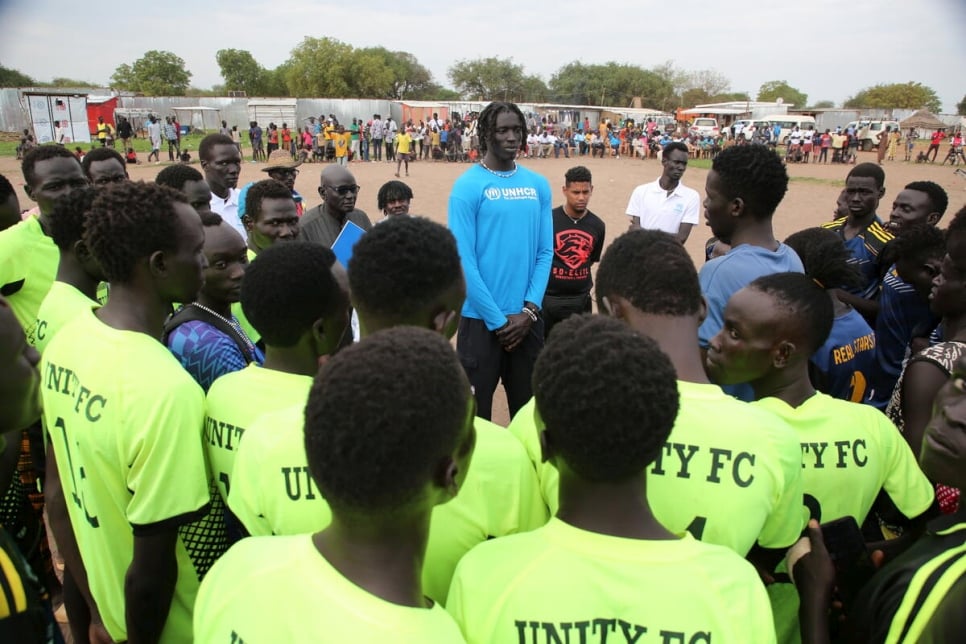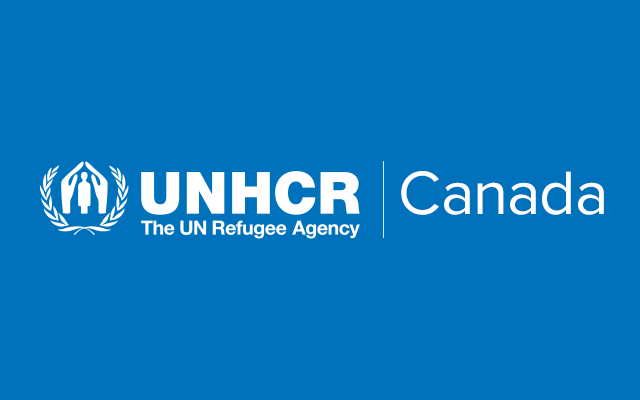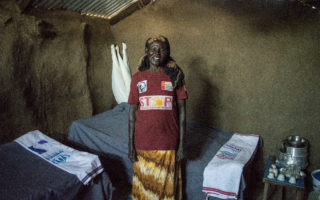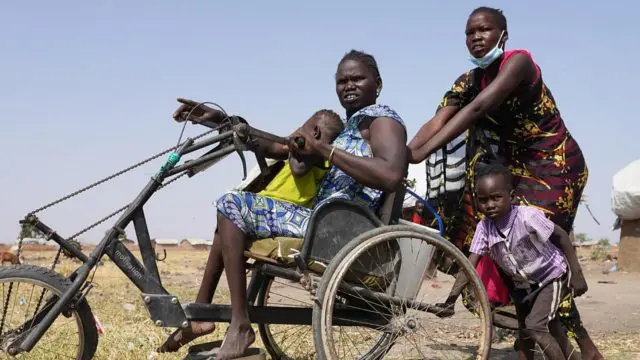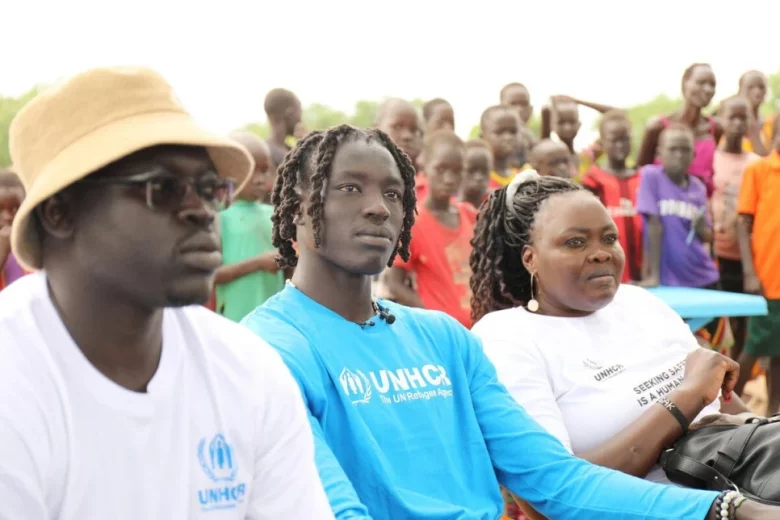
UNHCR supporter, former refugee and LA Lakers player, Wenyen Gabriel, with his mother Rebecca (right) and brother, Komot (left) at Mangalla Camp for internally displaced people in South Sudan. © UNHCR/Charlotte Hallqvist
By Colin Kampschoer
The former refugee and Los Angeles Lakers’ power forward returned to his home country for the first time with a message of hope for those displaced by floods and conflict.
When flooding forced 28-year-old Daniel to flee his submerged village in South Sudan’s Jonglei State, he hoped he would soon return. Boarding a crowded boat on the swollen White Nile, he found safety to the south, far from his home.
Two years later, he and his family still live in what has become Mangalla Camp for Internally Displaced People (IDPs) in Central Equatoria State. “We were among the first people to arrive at this site,” he says. Since then, it’s grown to house close to 40,000 people who narrowly escaped the floods.
Wenyen Gabriel met Daniel during his visit to Mangalla IDP Camp with UNHCR, the UN Refugee Agency, last month where he learnt more about the fates of those displaced and why they need support. “People aren’t here by their own choice, just like how I became a refugee before I was resettled to America wasn’t my own choice. It just happened to me,” he said. “We are all victims of our circumstances.”
South Sudan and the wider East Africa region are on the frontlines of climate change, suffering the impact of extreme weather such as flooding and drought. Seasonal rain and flooding is normal, but in recent years the water hasn’t receded, making large swathes of land unliveable. Today, an estimated 2 million South Sudanese people are displaced within their own country, due to conflict and natural disasters.
In addition to the internal displacement, South Sudan’s refugee crisis remains the largest in Africa with over 2.3 million South Sudanese refugees in neighbouring countries. Meanwhile, South Sudan itself also hosts over 340,000 refugees, mainly from the Democratic Republic of Congo and Ethiopia as well as Kenya, Sudan and Uganda.
Mangalla is one of eight locations in South Sudan where UNHCR is coordinating humanitarian support, together with partners, UN agencies, NGOs, and the government, for people forced to flee, in the form of food, clean water, shelter and medical care, as well as projects to strengthen long-term resilience.
Gabriel wants to use his platform and influence as a professional athlete to help his home country by building basketball facilities for people who have few opportunities for sports or recreation. During his visit, he organized a three-day basketball camp in the capital, Juba, for youth, including 20 displaced kids.
“Sports can provide opportunity to youth, especially if you can reach kids in their early developmental stages,” Gabriel said. “It can help them set up for life, and maybe some youth can become professional athletes, while others can have alternative paths.”
“There are so many talented people in South Sudan,” he said. “Yet people don’t have the means to succeed. I want to help with that.”
For Daniel, sport is about more than exercise, or even opportunity. “Sport can really bring us together,” he said. “It can help you forget about your stress and make you happy. I believe sport can bring unity to South Sudan.”
Blessing, a 19-year-old camp resident and volunteer teacher, welcomed Gabriel’s return to South Sudan. “Nothing can change your motherland. Your parents are born there, and you must return one day. I am very glad to receive Wenyen Gabriel as a fellow country member. We welcome him, he is one of us.”
That message was echoed by Gabriel who hoped his own story of overcoming the odds would inspire others. “We are all children of this land. It’s up to us to build it!” he said. “I am proud to be South Sudanese and want to contribute my part and help my people, including those who are displaced. Basketball can help with that.”
- See also: South Sudan emergency
Originally published by UNHCR on 18 August 2022.



